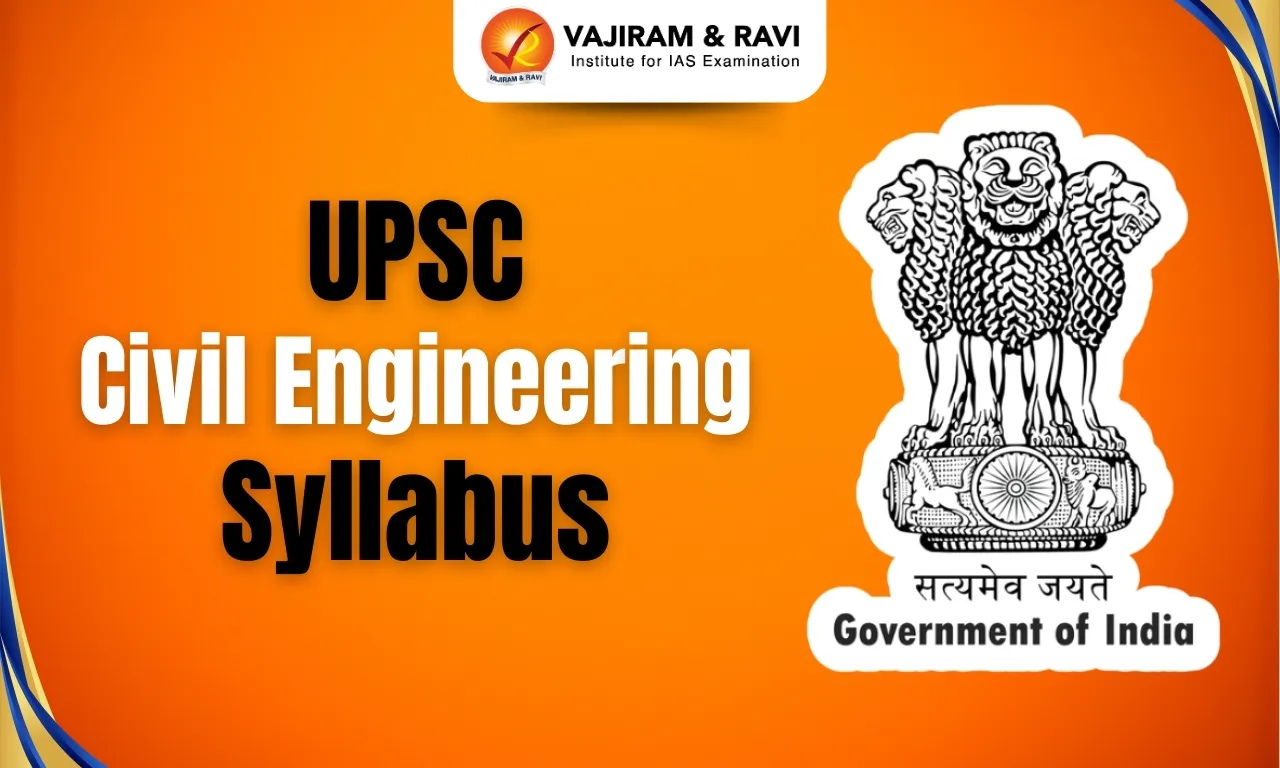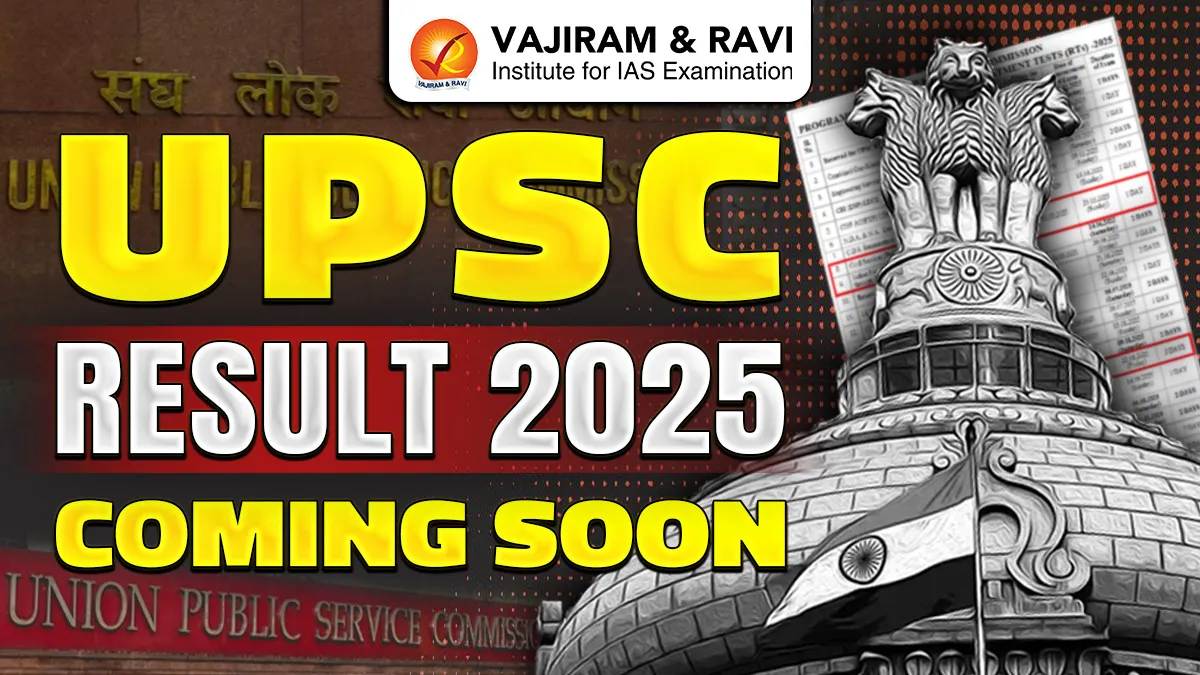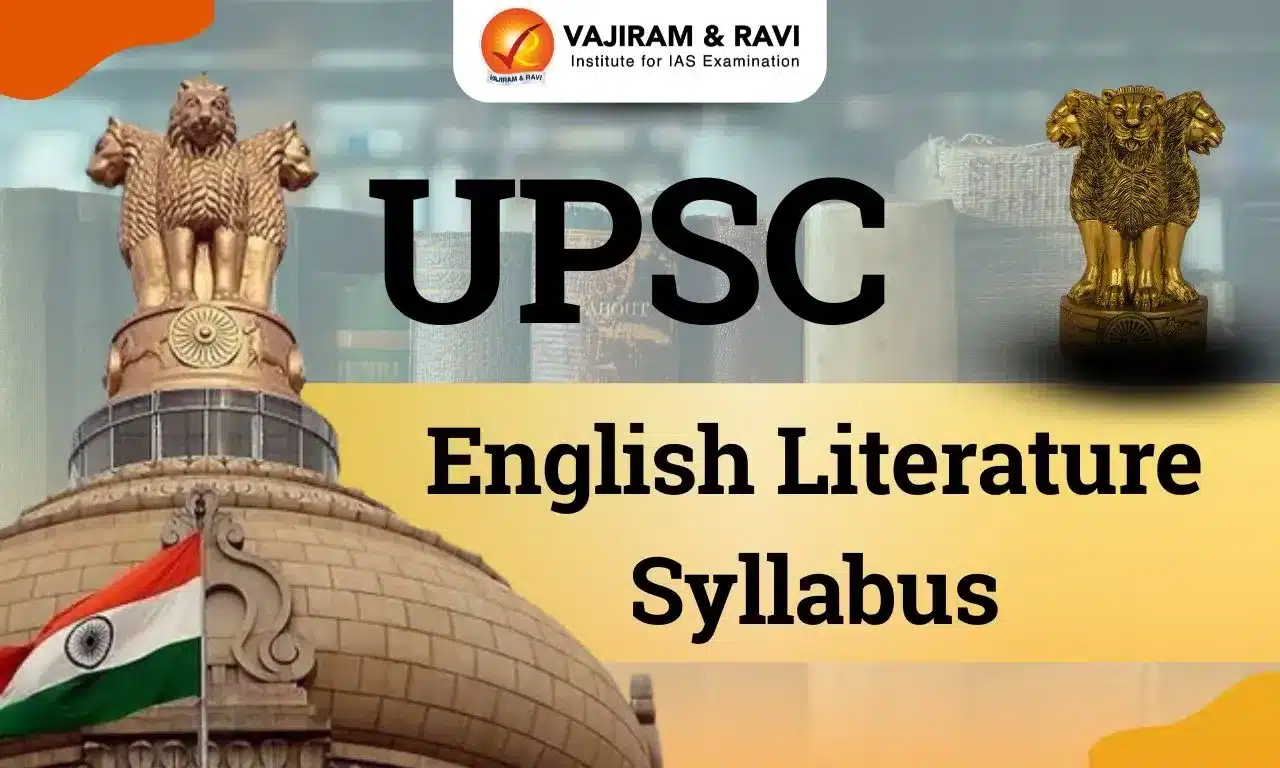The Union Public Service Commission (UPSC) offers Civil Engineering as one of the 48 optional subjects for the UPSC Mains Exam, specifically for candidates with a Bachelor’s or Master’s degree in Civil Engineering. Choosing Civil Engineering as an optional subject can be a strategic decision, especially if the candidate aims to score well in the optional exam. This article covers the syllabus, recommended books, preparation strategy of selecting Civil Engineering as an optional subject.
UPSC Civil Engineering Syllabus
The UPSC Mains Exam offers Civil Engineering, Mechanical Engineering, and Electrical Engineering as optional subjects. Civil Engineering primarily deals with the design and maintenance of physical and environmental structures like bridges and buildings.
It is generally recommended for candidates with an engineering background since it is a technical subject. Without prior knowledge, candidates may find it difficult to understand the concepts. For Civil Engineering graduates, choosing this optional can be time-saving as a significant portion of the syllabus is already covered with their academic studies.
UPSC Civil Engineering Syllabus for Paper 1
The UPSC Civil Engineering Syllabus for Paper 1 includes the topics covered during their engineering course including subjects like Engineering Mechanics, Strength of Materials, Structural Analysis, and Design of Structures. For a detailed subject description, refer to the table below.
|
UPSC Civil Engineering Syllabus for Paper 1 |
|
|
Topic |
Subtopic |
|
Engineering Mechanics, Strength of Materials, and Structural Analysis |
|
|
1.1 Engineering Mechanics |
|
|
1.2 Strength of Materials |
|
|
1.3 Structural Analysis |
|
|
Design of Structures: Steel, concrete, and masonry structures |
|
|
2.1 Structural Steel Design |
|
|
2.2 Design of Concrete and Masonry Structures |
|
|
Fluid Mechanics, open channel flow, and Hydraulic Machines |
|
|
3.1 Fluid Mechanics |
|
|
3.2 Dimensional Analysis and Similitude |
|
|
3.3 Laminar Flow |
|
|
3.4 Boundary layer |
|
|
3.5 Open channel flow |
|
|
3.6 Hydraulic Machines and Hydropower |
|
|
Geotechnical Engineering |
|
|
4. Geotechnical Engineering |
|
UPSC Civil Engineering Syllabus for Paper 2
The UPSC Civil Engineering Syllabus for Paper 2 includes the topics like Construction Technology, Equipment, Planning and Management, Surveying and Transportation Engineering, and Hydrology. For a detailed subject description, refer to the table below.
|
UPSC Civil Engineering Syllabus for Paper 2 |
|
|
Topic |
Subtopic |
|
Construction Technology, Equipment, Planning and Management |
|
|
1.1 Construction Technology (Engineering Materials) |
|
|
1.2 Construction |
|
|
1.3 Construction Planning and Management |
|
|
Surveying and Transportation Engineering |
|
|
2.1 Surveying |
|
|
2.2 Railways Engineering |
|
|
2.3 Highway Engineering |
|
|
Hydrology, Water Resources, and Engineering |
|
|
3.1 Hydrology |
flood frequency analyses, flood routing through a reservoir, channel flow routing—Muskingum method. |
|
3.2 Groundwater flow |
|
|
3.3 Water Resources Engineering |
|
|
3.4 Irrigation Engineering |
|
|
Environmental Engineering |
|
|
4.1 Water Supply |
|
|
4.2 Intake of Water |
|
|
4.3 Sewerage Systems |
|
|
4.4 Sewage Characterisation |
|
|
4.5 Sewage Treatment |
|
|
4.6 Solid waste |
|
|
Environmental pollution |
|
|
5. Environmental pollution |
|
UPSC Civil Engineering Optional Syllabus PDF
The UPSC Civil Engineering Optional Syllabus consists of two papers — Paper 1 and Paper 2, each carrying a weightage of 250 marks. Both papers cover around 4 major subjects. Below is a direct link for UPSC Civil Engineering Optional Syllabus PDF for candidates who are opting for Civil Engineering as their optional subject.
UPSC Civil Engineering Syllabus 2026 Preparation Strategy
Preparing for the Civil Engineering Optional in the UPSC Mains requires a focused and well-planned strategy. Candidates who are opting as optional subject can refer the below discussed UPSC Civil Engineering Optional Syllabus Preparation Strategy:
- Carefully go through the syllabus for Paper 1 and Paper 2 to identify the key topics.
- Choose standard textbooks and reference materials as per the syllabus for in-depth preparation.
- Prepare concise notes, especially for important formulas and concepts for quick revision.
- Enhance your presentation and time management skills by solving previous year’s papers and participating in a test series.
- Focus on problem-solving, particularly in subjects like Structural Analysis, Fluid Mechanics, and Transportation Engineering.
- Analyze your performance after each test and revise challenging topics.
- Allocate dedicated time for consistent revision and problem-solving to strengthen your understanding.
- Consider joining a Civil Engineering Optional coaching or seeking mentorship for expert feedback and guidance.
- Apply constructive feedback to improve your answer-writing skills and build a confident exam approach.
UPSC Civil Engineering Syllabus Optional Books
To effectively cover the Civil Engineering Optional Syllabus for the UPSC Mains, candidates should refer to the standard reference books which helps in building conceptual clarity. Below we have shared the list of UPSC Civil Engineering Optional Books that an appearing candidate who is opting for the Civil Engineering as the optional subject:
|
UPSC Civil Engineering Syllabus Optional Books |
|
|
Book |
Author |
|
Engineering Mechanics |
Irvin Shames |
|
Strength of Materials |
Stephen Timoshenko |
|
Strength of Materials |
S. Ramamrutham |
|
Intermediate Structural Analysis |
CK Wang |
|
Theory of Structures |
S. Ramamrutham |
|
Design of Steel Structures |
S Duggal |
|
Prestressed Concrete |
N Krishna Raju |
|
Handbook Of Reinforced Concrete Design |
SN Sinha |
|
Hydraulics and Fluid Mechanics Including Hydraulics Machines |
Modi and Seth |
|
Flow in Open Channels |
K Subramanya |
|
Basic and Applied Soil Mechanics |
Gopal Ranjan and Rao |
|
Soil Mechanics And Foundation Engineering |
SK Garg |
|
Construction, Planning, and Management |
UK Srivastava |
|
Irrigation Engineering |
S.K. Garg |
|
Building Construction |
Arora and Bindra |
|
Hydrology and Water Resources Engineering |
S.K. Garg |
|
Surveying |
BC Punmia |
|
Environmental Engineering (both volumes) |
S.K. Garg |
| Other Related UPSC Optional Syllabus | ||
|---|---|---|
|
UPSC Animal Husbandry & Veterinary Science Optional Syllabus |
|
|
Last updated on February, 2026
→ UPSC Notification 2026 is now out on the official website at upsconline.nic.in.
→ UPSC IFoS Notification 2026 is now out on the official website at upsconline.nic.in.
→ UPSC Calendar 2026 has been released.
→ UPSC Final Result 2025 is expected to be released in the first week of March 2026.
→ Check out the latest UPSC Syllabus 2026 here.
→ Join Vajiram & Ravi’s Interview Guidance Programme for expert help to crack your final UPSC stage.
→ UPSC Mains Result 2025 is now out.
→ UPSC Prelims 2026 will be conducted on 24th May, 2026 & UPSC Mains 2026 will be conducted on 21st August 2026.
→ The UPSC Selection Process is of 3 stages-Prelims, Mains and Interview.
→ Prepare effectively with Vajiram & Ravi’s UPSC Prelims Test Series 2026 featuring full-length mock tests, detailed solutions, and performance analysis.
→ Enroll in Vajiram & Ravi’s UPSC Mains Test Series 2026 for structured answer writing practice, expert evaluation, and exam-oriented feedback.
→ Join Vajiram & Ravi’s Best UPSC Mentorship Program for personalized guidance, strategy planning, and one-to-one support from experienced mentors.
→ Check UPSC Marksheet 2024 Here.
→ UPSC Toppers List 2024 is released now. Shakti Dubey is UPSC AIR 1 2024 Topper.
→ Also check Best UPSC Coaching in India
UPSC Civil Engineering Syllabus FAQs
Q1. What is the syllabus of UPSC for Civil Engineering?+
Q2. Is Civil Engineering good for UPSC?+
Q3. Which Civil Engineering exam is conducted by UPSC?+
Q4. Which engineering is best for UPSC?+
Q5. Is Civil Engineering in IIT?+
Tags: civil engineering optional syllabus upsc civil engineering syllabus
















